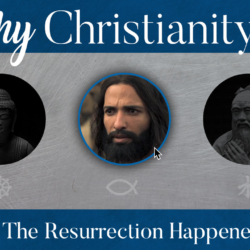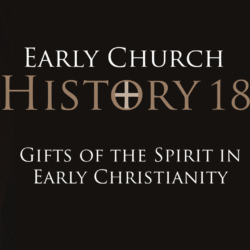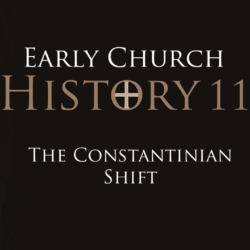Have you heard of the Restoration Movement? In today’s interview Eric Miller recounts the history of Barton Stone and Alexander Campbell as they initiated the movement to get back to the Bible over against denominational divisions. He explains the differences between the Disciples of Christ, the A Capella Churches of Christ, and the Independent Christian Churches. He also explores why the Independent Christian Churches is growing today.
Eric Miller is a Bible college student with the Independent Christian Churches in Cincinnati, Ohio. He’s passionate about evangelism and Spanish ministry.
Listen to this episode on Spotify or Apple Podcasts
—— Links ——
- Check out Eric Miller’s YouTube channel here
- See more episodes about the Trinity
- Support Restitutio by donating here
- Designate Restitutio as your charity of choice for Amazon purchases
- Join our Restitutio Facebook Group and follow us on Twitter @RestitutioSF
- Leave a voice message via SpeakPipe with questions or comments and we may play them out on the air
- Intro music: Good Vibes by MBB Attribution-ShareAlike 3.0 Unported (CC BY-SA 3.0) Free Download / Stream: Music promoted by Audio Library.
- Who is Sean Finnegan? Read his bio here.







Eric did a great job introducing the Restoration Movement. I too grew up with this background, although in the non-instrumental church. I received a degree in Missions from one of their prominent universities. In our stream, we talked very little about the Trinity, so discovering for myself what the Bible taught was necessary. For me, it was clearly Unitarian with Jesus as God’s Messiah. Like Eric, I identify with the independent Christian Church now, although they tend to be more Trinitarian than Churches of Christ are, there is still usually enough freedom to remain Unitarian within some churches. I look forward to episode 2.
Interesting, Mitch.
Regarding the Trinity doctrine circulating within your Churches : As I understand it from Wikipedia, the ‘Independent Christian Churches’ [that derive from Barton-Stone ‘Restorationist Movement’] believe that Jesus is ‘deity’. That in a sense may be true, but there there also seems to be crucial difference between Jesus having God [the Father] within Him (John 10:38; 2 Cor. 5:19 KJV), and Jesus being ‘God’, per se. Jesus never admitted to be being God, but only to being the Messiah and the Son of God (John 10:24-25; 10:33-36; cf. John 20:31)
An interesting talk from Eric.
All Christians should be a ‘Restorationists’ because all Christians (if they can) should embark upon a thorough, personal quest to fairly discover what New Testament Christians originally believed.
The Restoration Movement also throws much light upon the Christadelphians.
Although I have never been a Christadelphian, I have attended quite a few of their meetings in the past. The Christadelphian founder, Dr. John Thomas was once a keen member of the Barton-Stone Restoration movement in the 1820’s and 30’s – before he branched out to form his own exclusivist ‘Church’. John Thomas probably came under the influence by Alexander Campbell’s unusual pneumatology – which saw the holy Spirit only working through the written Word of God. For Campbell, the holy Spirit was still extant, but it only acted in conjunction with the influence of the inspired Scripture. However, John Thomas later took this ‘Campbellite’ position even further, and claimed that the entirely written Bible (Old and New Testaments) completely replaced any need for any direct influence of the holy Spirit itself, within the lives of Christians. According to Thomas, this occurred somewhere in the early sub-apostolic age, when God supposedly removed not only the supernatural holy Spirit gifts, but also the holy Spirit itself from directly influencing believers. Christadelphians are therefore best described as ‘hyper-cessationists’.